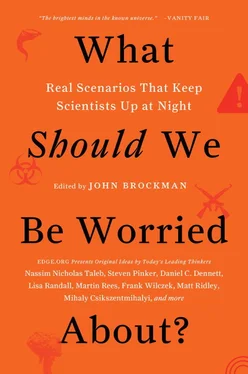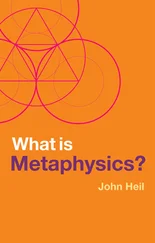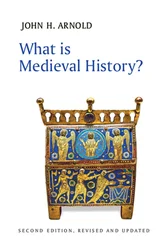WHO’S AFRAID OF THE BIG BAD WORDS?
BENJAMIN BERGEN
Associate professor, Department of Cognitive Science, UC San Diego; author, Louder than Words: The New Science of How the Mind Makes Meaning
At around 2:00 P.M. on Tuesday, October 30, 1973, a New York radio station played a monolog by the comedian George Carlin, enumerating and exemplifying in rich detail the seven words ostensibly not allowed on the public airwaves. Soon afterward, the FCC placed sanctions on the radio station for the broadcast, which it deemed “indecent” and “patently offensive.” Five years later, the U.S. Supreme Court upheld its decision. In other words, the highest court in the land judged certain words to be so dangerous that even the constitutional right to free speech had to be set aside. But why?
The children, of course. It was to protect the children. According to the Supreme Court, the problem with Carlin’s routine was that the obscene words, words describing sexual acts and excretory functions, “may have a deeper and more lasting negative effect on a child than on an adult.”
Many of us are afraid of exposing children to taboo language based on the same notion—that somehow certain words can damage young minds. And the well-being of children, were it indeed on the line, would most certainly be a justifiable reason to limit freedom of speech. But the problem is that the Court’s premise—that children can be harmed by selected taboo words—does not survive the test of empirical scrutiny. In fact, there are no words so terrible, so gruesomely obscene, that merely hearing them or speaking them poses any danger to young ears.
Taboo words carry no intrinsic threat of harm. Simply referring to body parts or actions involving them do not harm a child. Indeed, the things that taboo words refer to can be equally well identified using words deemed appropriate for medical settings or use around children. And there’s nothing about the sound of the words themselves that causes insult to the child’s auditory system. Near phonological neighbors to taboo words, words like “fit” and “shuck,” do not contaminate the cochlea.
Indeed, which particular words are selected as forbidden is an arbitrary accident of history. Words that once would have earned the utterer a mouthful of soap—expressions like “Zounds!” or “That sucks!” —hardly lead the modern maven to bat an ear. And conversely, words that today rank among the most obscene were at one time commonly used to refer to the most mundane things, like roosters and female dogs. No, the only risk children run by hearing the four-letter words prohibited over the public airwaves is the small chance of broadening their vocabularies. And even this possibility is remote, as anyone can attest who has recently overheard the goings-on in an elementary school playground.
So when the Motion Picture Association of America forbids children from watching the South Park movie; when parents instruct children to put their hands over their ears in “earmuff” position; and, indeed, when the FCC levies fines on broadcasters, they aren’t protecting children. But they are having an effect. Paradoxically, it’s these actions we take to shield children from words, with censorship foremost among them, that give specific words their power. And this makes perhaps the best argument that we shouldn’t be afraid of exposing children to taboo words. Doing so is the best way to take away any perceived threat they pose.
THE CONTEST BETWEEN ENGINEERS AND DRUIDS
PAUL SAFFO
Technology forecaster; consulting professor, School of Engineering, Stanford University
There are two kinds of fools: one who says this is old and therefore good, and the other who says this is new and therefore better. The argument between the two is as old as humanity itself, but technology’s exponential advance has made the divide deeper and more contentious than ever. My greatest fear is that this divide will frustrate the sensible application of technological innovation meant to solve humankind’s greatest challenges.
The two camps forming this divide need a name, and Druids and Engineers will do. Druids argue that we must slow down and reverse the damage and disruption wrought by two centuries of industrialization. Engineers advocate the opposite: We can overcome our current problems only with the heroic application of technological innovation. Druids argue for a return to the past; Engineers urge us to flee into the future.
The Druid/Engineer divide can be seen in virtually every domain touched by technology. Druids urge a ban on GMOs (genetically modified organisms); Engineers impatiently argue for the creation of synthetic organisms. Environmental Druids seek what the late David Brower called “Earth National Park,” while Engineers would take a page from Douglas Adams’ planet-designing Magratheans in The Hitchhiker’s Guide to the Galaxy, making a better Earth by fixing all the broken bits. Transhumanists and Singularitans are Engineers; the Animal Liberation Front and Ted Kaczynski are Druids. In politics, Libertarians are Engineers, whereas the Greens are Druids. Among religions, Christian fundamentalists are Druids and Scientologists are Engineers.
The gulf between Druid and Engineer makes the divide between C. P. Snow’s Two Cultures seem like a crack in the sidewalk. The two camps do not merely hold different worldviews; they barely speak the same language. A recent attempt to sequester oceanic carbon by dumping iron dust in the Pacific off British Columbia intrigued Engineers but alarmed Druids, who considered it an act of intentional pollution. Faced with uncertainty or crisis, Engineers instinctively hit the gas; Druids hit the brake.
The pervasiveness of the Druid/Engineer divide and the stubborn passions demonstrated by both sides reminds me of that old warrior-poet Archilochus and his hedgehog/fox distinction, revived and elaborated upon by Isaiah Berlin. Experience conditions us toward being Engineers or Druids just as it turns us into hedgehogs or foxes. Engineers tend to be technologists steeped in physics and engineering. Druids are informed by anthropology, biology, and the Earth sciences. Engineers are optimists: Anything can be fixed, given enough brain power, effort, and money. Druids are pessimists: No matter how grand the construct, everything eventually rusts, decays, and erodes to dust.
Perhaps the inclination is even deeper. Some years back, the five-year-old daughter of a venture capitalist friend announced, upon encountering an unfamiliar entree at the family table, “It’s new, and I don’t like it.” A Druid in the making, that became her motto all through primary school—and for all I know, it still is today.
We live in a time when the loneliest place in any debate is the middle, and the argument over technology’s role in our future is no exception. The relentless onslaught of novelties technological and otherwise is tilting individuals and institutions alike toward becoming Engineers or Druids. It is a pressure we must resist, for to be either a Druid or an Engineer is to be a fool. Druids can’t revive the past, and Engineers cannot build technologies that do not carry hidden trouble.
The solution is to claw our way back to the middle, and a good place to start is by noting one’s own Druid/Engineer inclinations. Unexamined inclinations amount to dangerous bias, but once known, the same inclination can become the basis for powerful intuition. What is your instinctive reaction to something new; is anticipation or rejection your default? Consider autonomous highway vehicles: Druids fear that robot cars are unsafe; Engineers wonder why humans are allowed to drive at all.
My worry is that collective minds change at a snail’s pace, whereas technology races along an exponential curve. I fear we will not rediscover the middle ground in time to save us from our myriad folly. My inner Engineer is certain that a new planetary meme will arrive and bring everyone to their senses, but my gloomy Druid tells me that we will be lucky to muddle our way through without killing ourselves off or ushering in another Dark Age. I’ll be happy if both are a little right—and a little wrong.
Читать дальше












